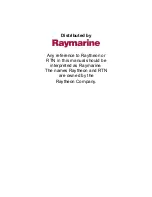
13
You should be in good mental and physical health. Do not operate
if you are under the influence of alcohol or any medication or
substance which could affect your vision, dexterity or judgment.
Inspect the area before using the unit. Remove objects which the
unit could throw or become entangled with. Remember where
there are obstructions to be avoided. It is good practice to remove
any debris (wire, rocks, wood, cans, glass, etc.) after cutting an
area. Later, when the area grows back, you will have reduced the
accumulation of hidden debris which the unit could throw.
Inspect the unit before using it. Perform only maintenance or
adjustments for which the operator’s manual gives instructions.
Do not try to repair the unit without proper instructions. The unit
should be serviced only by trained ECHO dealer servicemen with
the proper tools. Be sure that:
a) Engine does not leak fuel.
b) Fasteners are tight, and none are missing.
c) Muffler complies with local fire codes and noise ordi-
nances and is in good condition. (Spark arresters may be
required.)
d) The unit has the proper equipment—shields, handles,
harness, etc.—for the line or blade head to be used.
e) If a blade (made of metal or other materials such as rubber
or plastic) is used on the unit, be sure the blade is attached
to the unit as designed, such as with a cotter pin and nut.
Do not cut with dull, cracked or damaged metal blades.
WARNING
DANGER
Never start the engine if the drive shaft is not in place to
prevent the engine from overspeeding or the clutch from
flying apart.
GENERAL OPERATION
Do not run the engine indoors, or where there is poor ventilation.
Engine fumes contain deadly poisonous carbon monoxide.
Wear the recommended foot, leg, head, eye and hearing protection
at all times during operation. Also, assess the job to be done, and
whether other types of protection may be necessary. (See page 8.)
Before starting, check that the cut-off knife is properly located in
the debris shield, and the line does not extend far beyond the
knife.
Never operate the unit without the proper shields and other
protective devices. (See page 9.)
REMOVE
OBJECTS
TRIMMER
COULD
THROW
HEAD WAS
NOT TIGHT!
INDOOR OPERATION














































